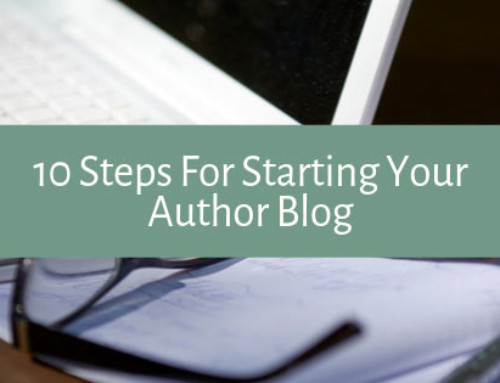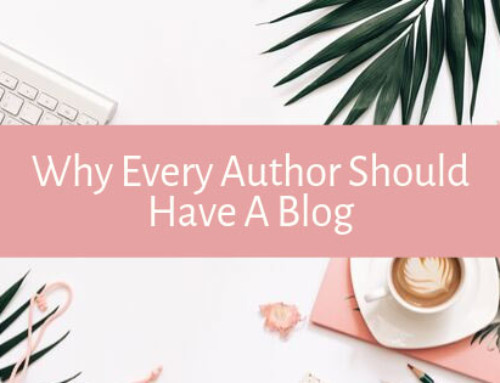The purpose of your author bio isn’t simply to describe you accurately and summarize your life or work. A well-executed author bio will intrigue potential readers and entice them to buy your book. For first-time indie authors, writing a compelling author bio can be difficult. Keeping a few key ideas in mind can make the process a lot easier—and the results more successful.
Your Author Bio Needs to Sell You (to Your Target Reader), Not Just Tell About You
Your bio should include the basics, like where you live and a short mention of your family life. Readers like to feel a connection with their favorite authors, and the basics show you as someone they can relate to. You do want to be someone’s favorite author, right? If you live in Chicago, they picture you taking the “L” train and walking on a brick-lined street eating a hot dog with all the fixings. And they want to see you this way.
Consider the following two examples of author bio introductory sentences.
Casey Edwards lives in Minneapolis, Minnesota with her partner Sam and their dog Bandit. She has been in human resources much of her career, but recently left to pursue writing crime novels.
Or
Casey Edwards braves the dark northern winters in Minneapolis, Minnesota, along with her partner Sam and their sidekick, a lovable husky named Bandit. Recently, she left a safe office career behind in favor of pursuing her lifelong passion of writing crime thrillers.
The second example has much more personality. The author has become brave and is a passionate risk taker. Crime thriller readers will eat that up!
It’s More Important for Your Author Bio to Be Interesting than Accurate
Your bio doesn’t have to be the most accurate and chronological representation of your life. It all has to be true, but it doesn’t have to be all of the truth. If you worked as a store clerk or lived for five years in your mom’s basement before you were a whitewater rafting guide or a tattoo artist, don’t mention it. If you like tennis more than trapeze flying, who cares? The second one is more interesting. Include that, and leave the other out.
Consider these examples.
When she isn’t writing, Casey Edwards enjoys baseball, museums, canoeing, walks, birding, and photography.
Or
When she isn’t writing, you might find Casey Edwards wandering the city or meandering through its many waterways in a canoe, always with an old film camera in her hand.
In the second example, the author’s hobbies aren’t mentioned explicitly, but you get a livelier and more interesting picture of her with the active language. And when her genre is action-packed crime fiction, including her love of museums, birding, and baseball seem too slow paced. Leaving out some hobbies and interests can also give you content for revising your author bio for the next book or for using in other online marketing efforts (like on social media!).
Your Bio Needs to Be (Mostly) Relevant to Your Book’s Genre or Subject Matter
An entire paragraph shouldn’t be spent talking about your career as a pilot if the book is fiction. Even if it includes a main character who’s a pilot, and it takes place on an airplane, keep mention of your career to a minimum. Your bio is the place to focus on you as an author, no matter how proud you are of your accomplishments. You wouldn’t put author on your resume when you apply for a pilot position.
Rather than saying which prestigious places of employment are in your past, why not say how a certain aspect of them inspired your writing? Consider these examples.
Casey Edwards worked for Campbell and Beckett Law for twenty years before deciding to write novels about crime.
Or
During her long career in the legal field, Casey Edwards found herself increasingly obsessed with the people’s stories behind the cases. Finally, she gave in, resigning in order to have time to work on the crime novels swimming around inside her head.
It comes across as boastful when you include too many references to your professional notoriety. Readers of your science fiction trilogy don’t need to know your whole resume of successful corporate mergers. They’d rather know what inspires you. They’re fans of you as an author, not as a person, and they admire your sci-fi ability, not your previous successful career.
On the flip side, if you’re a fantasy author with a PhD in mythology or folklore, or a history professor who writes alternative historical fiction, that’s relevant and should be highlighted—just not too much. Only enough to lend credibility. Don’t cross the line to bragging.
You Need a Decent Author Photo
Readers want to see and connect with the face of the writer whose words they’re reading. People naturally make more of a connection with a human image and face. I’ve seen authors use their dog’s photo, the way they might on their Pinterest page, for their online book listings. It looks pretty silly when other listings have professional head shots, and your book has a blurry image of a pug.
Make sure you’re using a good quality photo where you’re well presented and the background is free of distractions. Your bad photo isn’t charming; it’s amateur. Your readers will lack confidence in you.
If you use a pen name, or don’t want to show your face for some other reason, you can still create something to replace this human connection effect. Try building an avatar online or taking a photo with an artistic pose or camera angle so your face isn’t visible.
It might be helpful to create a target reader and write the bio for them. If you write historical romance, for example, think of your target market and create a customer persona. What would they be the most interested to know about you? Thinking about your author bio this way, and keeping in mind the key ideas above is sure way to pique readers’ interest in you. And if they’re interested in you, they just might want to read your book.
Discover more from Mill City Press
Subscribe to get the latest posts sent to your email.














Leave A Comment